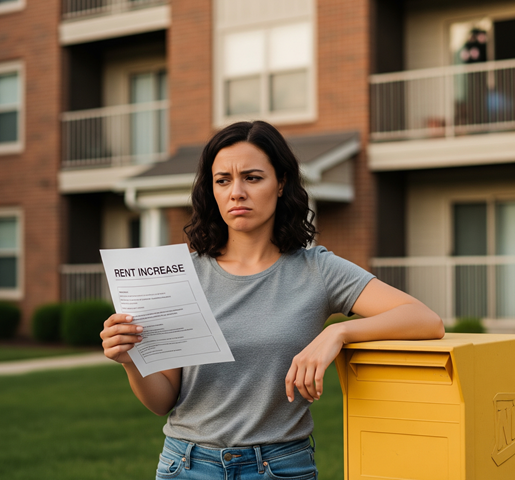Updated 6 months ago on . Most recent reply
When to Raise Rent ( And When Not To)

After more than two decades in property management, I’ve seen just about every reaction to a rent increase—ranging from calm acceptance to outright panic. And I get it. Raising rent can feel like walking a tightrope: you want to protect your bottom line, but you also don’t want to push away a great tenant or run afoul of California’s ever-evolving rental laws.
So, when is the right time to raise rent? And just as importantly—when is it better to hold off?
Let’s break it down.
Timing Isn’t Everything—But It’s a Lot!
The ideal moment to raise rent is at lease renewal. That’s when your legal footing is strongest and the tenant is already thinking about their next step. In my state (California), properties governed by the Tenant Protection Act are limited to increases of 5% plus the local Consumer Price Index (CPI), not to exceed 10% in a 12-month period. Even if your property falls outside of rent control regulations, aligning with state guidelines can still be a strategic move—especially when it comes to tenant retention and avoiding unnecessary scrutiny
Beyond legal limits, think about timing in terms of market cycles. Is your vacancy rate low? Are similar units nearby renting for more? Has your cost of ownership—insurance, taxes, utilities—risen over the past year? These factors give you real, objective justification for an increase.
Good Reasons to Raise Rent
A rent increase should always be grounded in purpose, not just habit. Some of the strongest reasons to raise rent include:
Increased operating expenses
Significant property improvements (new flooring, appliances, etc.)
Market shifts showing higher rates for similar units
A strategic portfolio review showing below-market positioning
It’s not just about adding dollars—it’s about maintaining your investment’s performance in a changing economic landscape.
But Sometimes, Holding Off Is the Smarter Play
In the past, I’ve been know to advise some clients not to raise rent—even when they technically could. Why?
Because a great tenant is worth their weight in gold.
If your resident pays on time, maintains the unit, and causes no drama, a small rent increase could sour a perfectly good relationship. And in softer markets, where demand is flat or competition is high, raising rent could lead to vacancy—and vacancy is always more expensive than a missed increase.
It’s also wise to hold off if the property has unresolved maintenance issues. Nothing undermines a rent hike faster than a leaky faucet or a broken heater. If you’re planning to raise rent, the unit needs to justify it.
The Bottom Line: Rent Increases Should Be Intentional, Legal, and Fair
Raising rent isn’t about squeezing tenants—it’s about aligning your rental income with the realities of the market, your expenses, and your long-term goals. A well-timed, well-explained increase can keep your property healthy without putting your tenant relationships at risk.
One of the ways we stay on top of it is to offer detailed rent reviews and market evaluations for all our clients, so they can be sure where their rents stand—if you're concerned about how to navigate an increase—you may want to talk to a local property manager who has their fingers on the pulse of the market. Because rent is just one piece of the puzzle.



